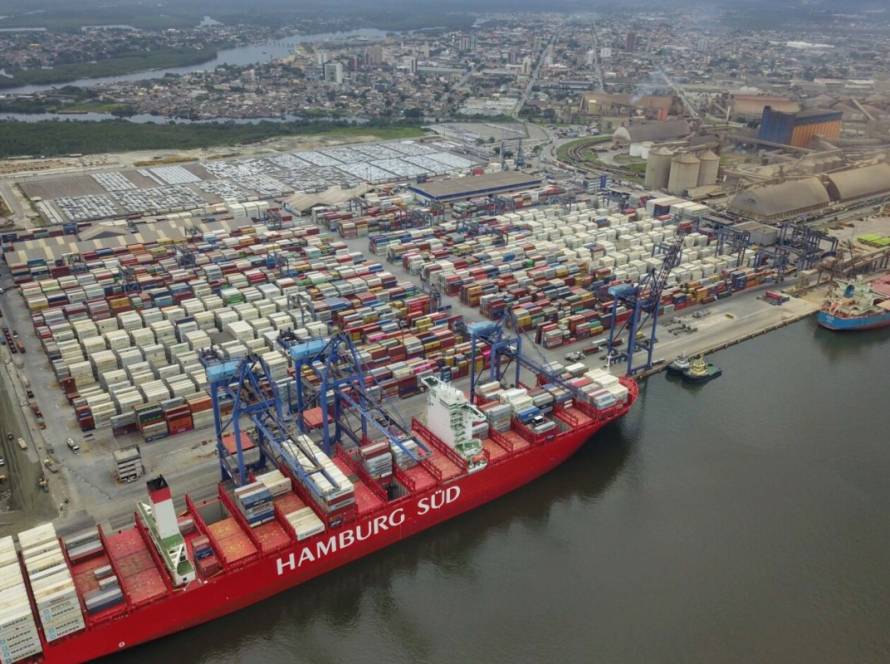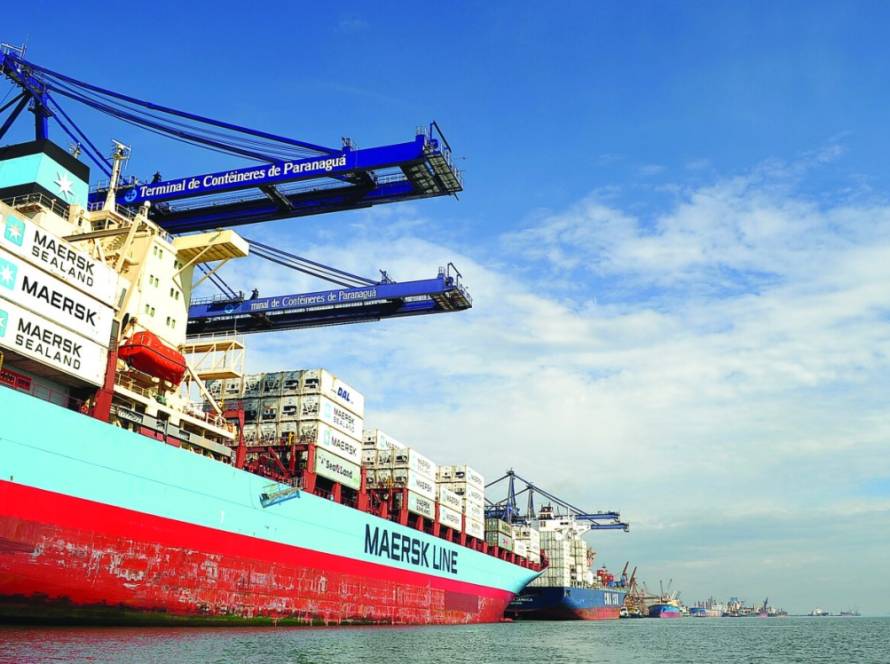Over the years, the United States has lost relevance in Brazil's trade agenda. From 2001 to 2024, the American share of total Brazilian exports declined from 24.4% to 12.2%, practically halving.

The numbers that show this behavior are part of the Foreign Trade Indicator (Icomex), a monthly study by the Brazilian Institute of Economics (Ibre) of the Getulio Vargas Foundation (FGV), released this Monday (14).
While the American share of our exports fell by 51%, that of China, currently Brazil's main trading partner, increased more than eightfold, going from 3.3% to 28% in the period from 2001 to 2024.
The European Union, with 441 fewer TP4T, and South America, with 311 fewer TP4T, also lost ground to the Asian giant in the 23-year period. Even with these two groups of countries losing share, they still remain ahead of the United States.
Participation in Brazilian exports:
- China: 28%
- European Union: 14.3%
- South America: 12.2%
- United States: 12%

Ibre FGV prepared the ranking based on data from the Foreign Trade Secretariat of the Ministry of Development, Industry, Commerce and Services (MDIC).
Icomex analyzes foreign trade, such as the behavior of the trade balance, the difference between exports and imports, and pays special attention in this edition to the tariff hike promised by American President Donald Trump, who announced a 50% tax on Brazilian products entering the United States starting August 1st.
The survey also highlights the decline in American relevance in Brazilian imports. In 2001, the United States accounted for 22.7% of what Brazil purchased from other countries. By 2024, this figure had fallen to 15.5%. This difference represents a decline of 32%.
In the same period, China's share jumped more than tenfold, from 2.3% to 24.2%. The European Union saw its share of our imports fall by 31%, and South America fell by 45%.
Participation in Brazilian imports:
- China: 28%
- European Union: 18%
- United States: 15.5%
- South America: 10.2%
Diversified exports

Photo: Rodrigo Felix Leal
The study indicates that exports to the United States have a diverse profile. For comparison, when it comes to China, just three products account for 96% of what Brazil sells: oil, soybeans, and iron ore.
In the case of the United States, 10 products represent 57% of Brazilian exports.
Participation of the main products on the export agenda to the USA:
- Crude petroleum oils and oils obtained from bituminous minerals, crude: 14%
- Semi-finished products, ingots and other primary forms of iron or steel: 8.8%
- Aircraft and other equipment, including their parts: 6.7%
- Roasted coffee: 4.7%
- Pig iron, spiegel, sponge iron, iron granules and powder or steel and ferroalloys: 4.4%
- Fuel oils obtained from petroleum or bituminous minerals (other than crude oils): 4.3%
- Cellulose: 4.1%
- Other products – Manufacturing Industry: 3.8%
- Civil engineering and construction installations and equipment, and their parts: 3.6%
- Fruit or vegetable juices: 3%
Ibre/FGV also points out that sets of steel products, aircraft, vegetable juices and excavators would be the most affected by the American action, as they depend heavily on the world's largest economy:
- raw cast iron and Spiegel iron: 86% of exports go to the USA;
- semi-finished products of iron or non-alloy steel: 72.5%;
- aerial vehicles (helicopters and airplanes): 63%;
- mechanical shovels and excavators: 53%;
- fruit juices: 34%
Search for markets
Ibre/FGV associate researcher Lia Valls, a consultant at Icomex, believes that some Brazilian products, such as meats and juices, could be potential targets for our markets. "This segment of commodities [primary products traded in large quantities] may be successful," she believes.

However, she believes it's not easy to find new countries to buy products that will become unviable for the United States due to the price increase. "The country can't divert exports in the short term. There are some types of products, especially in the manufacturing industry, many of which are manufactured by American multinationals, that may no longer be so easy to market in other markets. Furthermore, there's fierce competition from China itself," she explains.
Trump
The FGV report notes that the American president has already backtracked on the tariff hike several times. The study shows that on April 2nd of this year, which became known as Liberation Day, Trump threatened partner countries with tariffs.
At the time, Brazil's tariff was 10%. A tariff war with China was triggered, with tariffs reaching 145%. After mutual promises of retaliation, the two countries reached an agreement, reducing the tariff to 30%.
In recent months, some countries have announced agreements with the Americans, but Brazil was surprised last week with the 50% rate.
FGV emphasizes that, unlike the April threat, when the motive for taxing Brazilian goods was purely commercial, the current intention involves political issues, including the Supreme Federal Court (STF) case against former President Jair Bolsonaro for attempted coup and a recent ruling against technology giants, known as Big Tech. "It was the only [letter] that explicitly stated political motivations, which limits the Brazilian government's room for negotiation, as it addresses issues that are the exclusive purview of the Brazilian state," says an excerpt from the study.
Although Trump's letter points to a trade deficit – buying more than it sells – between the United States and Brazil, the FGV reinforces the opposite: Brazil has not registered a surplus with the United States since 2009. "In the first half of 2025, the Brazil-United States bilateral trade balance was minus US$1.7 billion," meaning we bought more from them than they bought from Brazil.
The study assesses that there is a chance that the US government will backtrack on the tax, either due to Trump's history of decisions or due to pressure from American companies that have also been harmed.

"At the moment, we hope that negotiations are possible, that Trump will follow the "Trump Always Chickens Out" (Taco) approach, which loosely translates to "Trump chickens out" or "backs down," writes Ibre. "Furthermore, some of Brazil's exports to the United States are from American multinational companies, which could put pressure on the Trump administration, just as companies in the United States that use intermediate goods [which will be transformed into final products] from Brazil in their production," it adds.
Reactions
The Brazilian government has been seeking ways to reverse US taxation. In addition to negotiations, Brazil is signaling the Economic Reciprocity Act, which would increase the cost of imports from the United States.
Outside the government, the Supreme Federal Court itself issued a statement, in a letter signed by Chief Justice Luís Roberto Barroso. The judge asserts that there is no political persecution in the country and that Trump's decision was based on an "inaccurate understanding of the facts."





